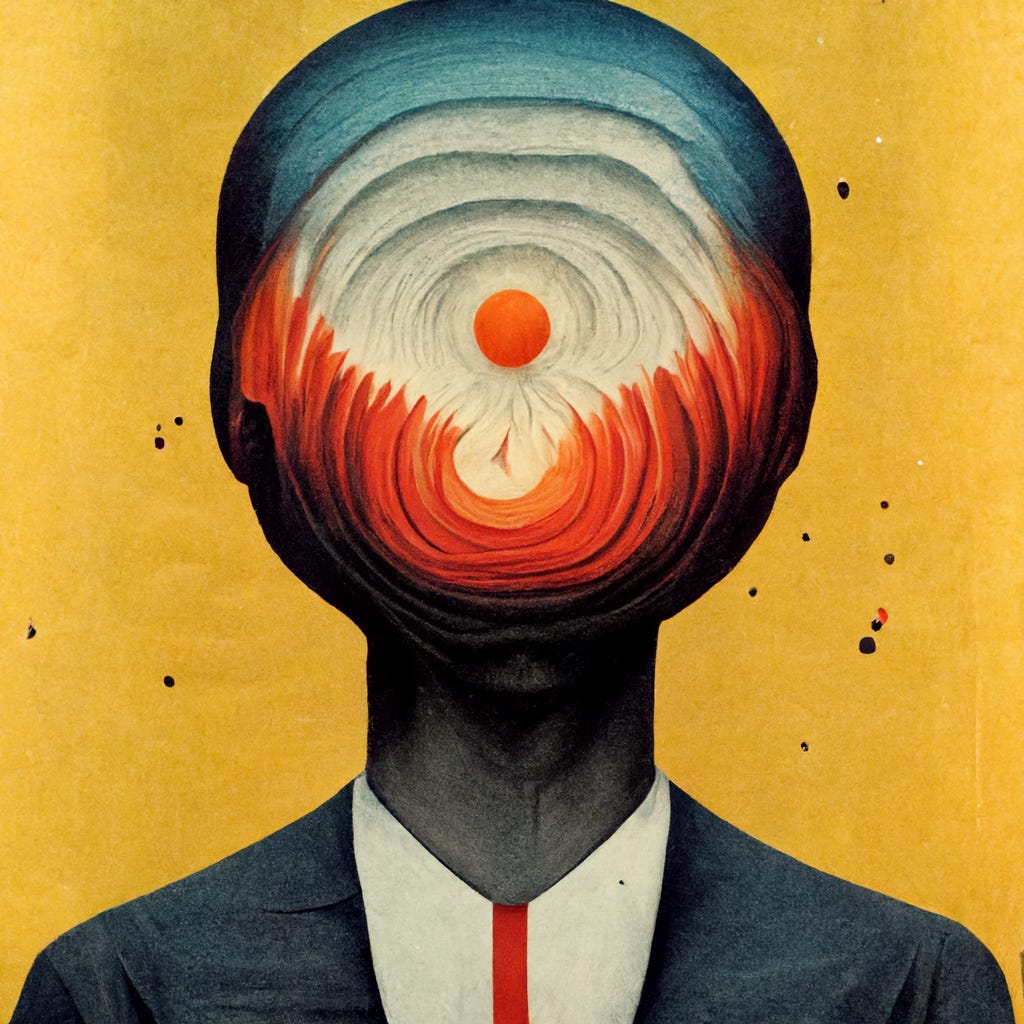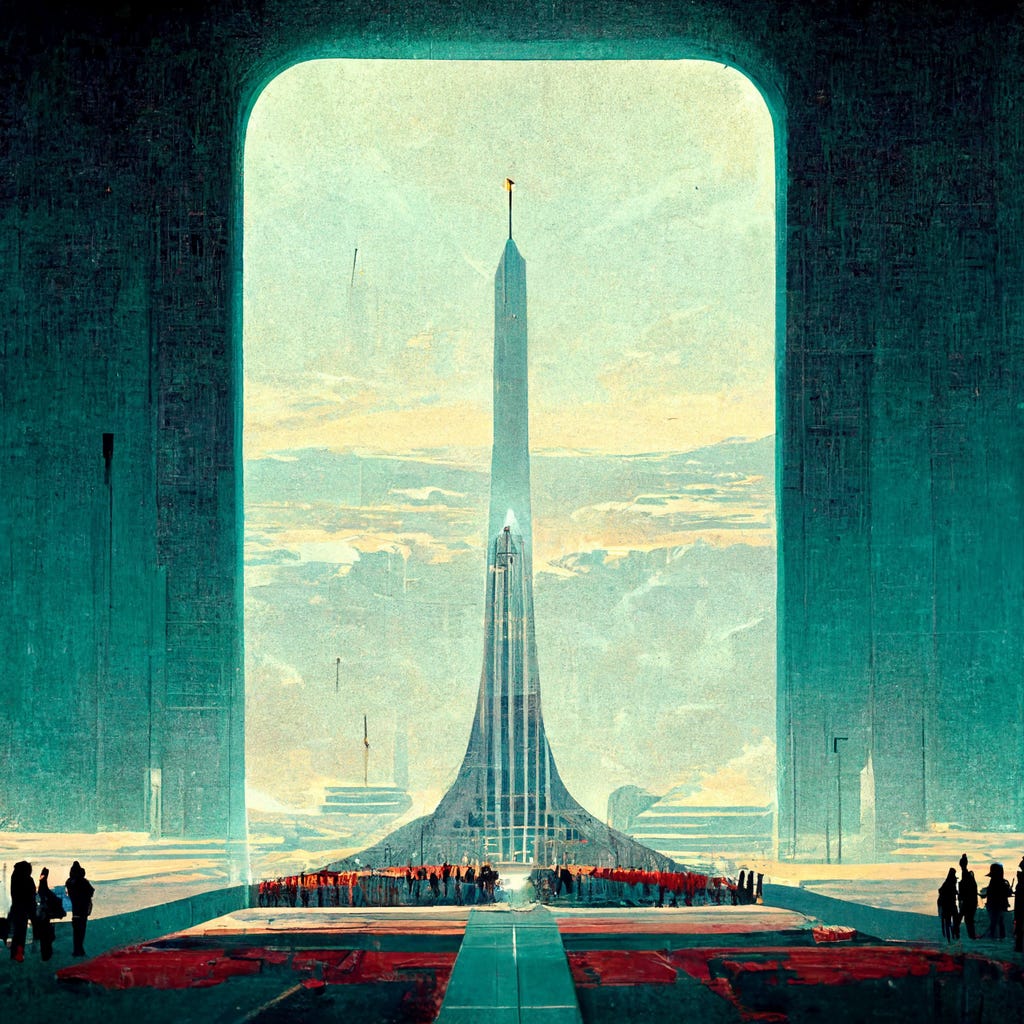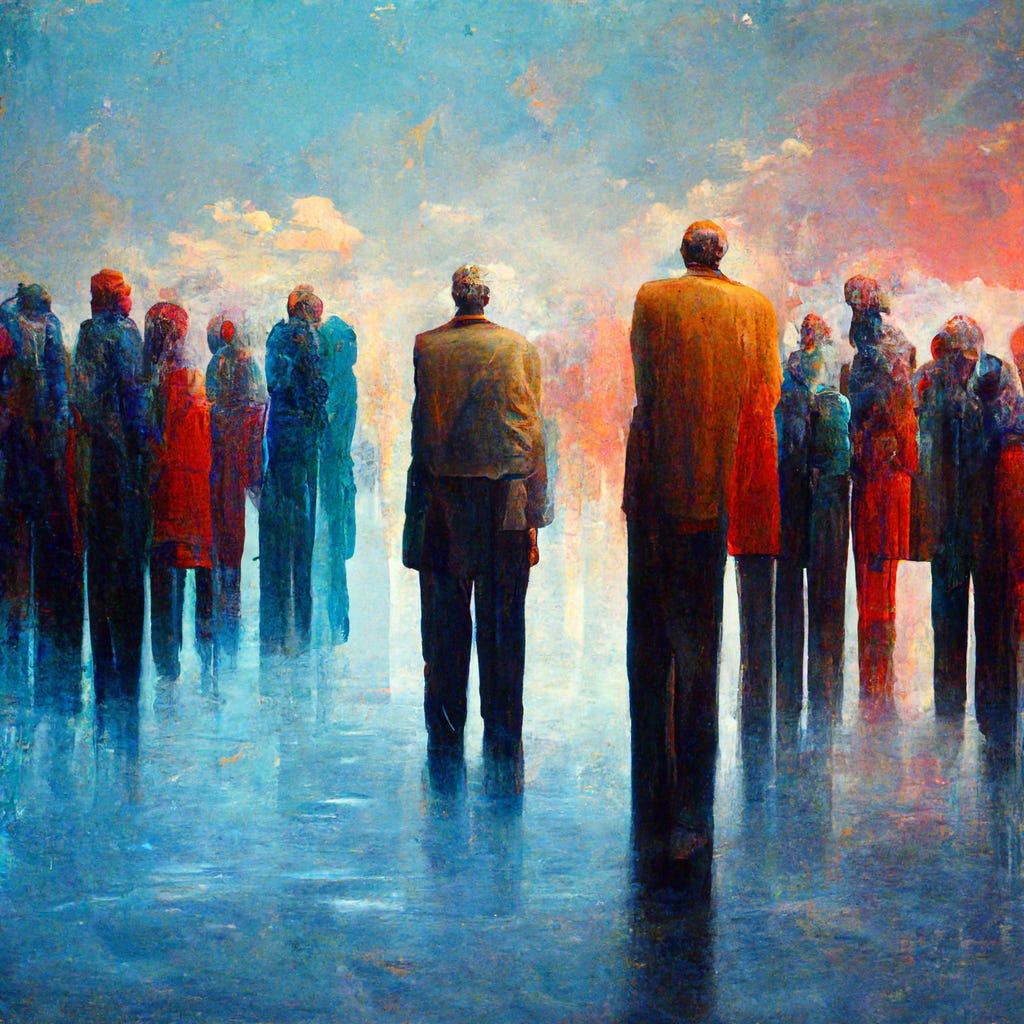Governing our Future
The Role of Government in Shaping Our World
“The government is us; we are the government, you and I.”
Theodore Roosevelt
As we look towards the future, one of the most important questions we can ask is: what will the role of government be in shaping a positive future for us all? From addressing climate change and economic inequality to promoting social cohesion and inclusion, the challenges and issues facing humanity today are complex and multifaceted, and will require governments to adapt and respond in order to effectively serve the needs of their citizens. At the same time, ongoing digitisation, emerging technologies like AI & blockchain, and social and political movements are likely to have a significant impact on the direction of government and the ways in which it operates.

But what does the future of government look like? Will it be able to effectively address the challenges and issues facing humanity, or will it be overwhelmed by the scale and complexity of these problems? And how will we overcome challenges like corruption, mistrust, lack of transparency and more? These are just a few of the questions that we will explore in this article, as we consider the potential impacts of emerging technologies, changing demographics, economic trends, and social and political movements on the future of government and the realization of a positive future for humanity. So let's dive in and take a closer look at the future of government and what it may hold for humanity.
Governing throughout the Ages
Throughout human history, governments have played a central role in shaping the societies in which we live. From the earliest civilizations to the modern world, governments have evolved and adapted in response to changing social, economic, and political conditions.
One of the oldest forms of government is the monarchy, in which a single ruler, such as a king or queen, holds absolute power. Monarchy was common in ancient civilizations, such as Egypt and China, and continues to be a form of government in some modern countries, such as Saudi Arabia.
Another form of government is democracy, in which power is held by the people and exercised through elected representatives. The ancient Greeks are credited with developing the first democratic system, in which citizens participated directly in the decision-making process through the assembly. Modern democracies operate on a representative system, in which citizens elect representatives to make decisions on their behalf.
Other forms of government include oligarchy, in which a small group of individuals holds power, and autocracy, in which a single individual holds absolute power. Throughout history, governments have often been characterized by a combination of these forms, with various groups and individuals vying for power and influence. Russia is a current example using this form.
In more recent times, globalization and the rise of technology have had a significant impact on the way governments operate. The increasing interconnectedness of the world has led to the emergence of global governance systems, such as the United Nations and the World Trade Organization, which seek to address global challenges and promote cooperation among nations. At the same time, advances in technology have led to the development of new forms of governance, such as e-governance, which utilizes digital technologies to improve the delivery of public services.
Challenges to the Government
Governments face a range of challenges that can negatively impact their ability to effectively serve the needs of their citizens and create bad governance. These challenges can range from external factors, such as global economic conditions or natural disasters, to internal issues, such as corruption or lack of transparency. In recent years, governments have also had to grapple with growing mistrust and misinformation, which can further undermine their ability to govern effectively.
One major challenge to governments is corruption, which can take many forms, such as bribery, embezzlement, or nepotism. Corruption undermines trust in government and can lead to the misallocation of resources and the creation of policies that are not in the best interests of the people. It can also create a sense of cynicism among citizens, who may feel that their government is not working for them.
Another challenge is lack of transparency, which can make it difficult for citizens to hold their government accountable for its actions and decisions. This can lead to mistrust of government and a lack of confidence in the political system.
In addition, governments may face challenges related to social and economic inequality, which can create divisions and tensions within societies. This can lead to social unrest and political instability, which can undermine the ability of governments to effectively govern.
The growing mistrust and misinformation in society can also present significant challenges for governments. In an age of social media and fake news, it can be difficult for governments to effectively communicate their policies and actions to the public. This can lead to misunderstandings, which can further undermine trust in government. It is important for governments to be proactive in addressing these challenges and to work to build transparency and trust with their citizens.
Finally, governments may also face challenges related to changing demographics and social and political movements, which can create new demands and expectations for government policies and services. It is important for governments to be responsive to these changes and to work to address the needs and concerns of all members of society.
Overall, it is clear that governments face a range of challenges that can impact their ability to effectively govern and create bad governance. By addressing these challenges and working to build trust and transparency, governments can create a more positive future for their citizens and society as a whole.

Emerging Technologies and Movements
Despite the many challenges facing governments, there are a number of ways that emerging technologies and social and political movements can help to overcome these challenges and create more effective governance.
One way that emerging technologies can help to address challenges such as corruption and lack of transparency is through the use of blockchain technology. Blockchain is a decentralized digital ledger that allows for the secure and transparent tracking of transactions. By using blockchain, governments can create more transparent and accountable systems for the management of resources and the delivery of public services.
In addition, emerging technologies such as artificial intelligence (AI) and machine learning can be used to improve the efficiency and effectiveness of government operations. For example, AI can be used to analyze large amounts of data and make informed decisions, while machine learning algorithms can be used to predict and prevent problems before they occur.
In order to address the challenges of mistrust and misinformation, governments can also utilize AI and machine learning to better understand and engage with their citizens. For example, governments can use social media and other digital platforms to communicate with citizens and address their concerns and questions. They can also use data analytics to better understand the needs and concerns of different segments of the population and tailor their messaging and policies accordingly.
Social and political movements can also play a role in addressing challenges facing governments. For example, grassroots movements focused on issues such as climate change or social justice can bring attention to important issues and apply pressure on governments to take action. Similarly, movements focused on promoting transparency and accountability, such as anti-corruption campaigns, can help to build trust in government and improve governance.
Overall, it is clear that emerging technologies and social and political movements have the potential to play a significant role in addressing the challenges facing governments and creating more effective governance. By leveraging these resources, governments can create a better future for their citizens and society as a whole.

An AI to govern us all?
As mentioned, we can designs AIs help to govern us, but what if we let them fully take over governing and truly overcome our human fallibilities? Could an AI govern in a way that was more just, fair, and in the best interests of all members of society?
One possibility is that an AI governed by objective, unbiased algorithms could make decisions that were more fair and equitable than those made by humans, who are subject to a range of biases and prejudices. An AI could also analyze large amounts of data and make informed decisions based on evidence and analysis, rather than being swayed by emotions or self-interest.
However, it is important to recognize that an AI governed by objective algorithms would still be subject to the limitations and biases of the data it is trained on. In order to ensure that an AI governed in a way that was truly fair and equitable, it would be important to ensure that the data it was trained on was representative and unbiased.
Another potential issue is that an AI governed by objective algorithms may not fully understand or appreciate the values and concerns of humans. While an AI may be able to make decisions based on objective criteria, it may not be able to fully understand the subjective experiences and values of human beings. Imagine what could go wrong without these insights…
So do we as humans really give our lives to an AI designed by us? We likely would always like a group of humans we trust in the ultimate control to represent us all.

Overcoming Challenges with Human Solutions
While emerging technologies and social and political movements can certainly play a role in addressing the challenges facing governments, it is important to recognize that ultimately, it is human beings who will be responsible for creating more effective governance.
So, what can we do as individuals and as a society to overcome the challenges of bad governance, mistrust, and misinformation?
One key solution is to promote values and principles such as transparency, accountability, and inclusivity. By fostering these values within government and society, we can create a culture that is less prone to the negative impacts of human fallacies such as fear, greed, and the pursuit of power.
In addition, we can work to educate ourselves and others about the risks of bad government and the importance of good governance. This can include efforts to promote critical thinking and media literacy, as well as efforts to engage in the political process and hold our governments accountable.
Finally, we can also work to create more inclusive and participatory governance systems, which can help to ensure that the needs and concerns of all members of society are considered and that power is more evenly distributed. This can include efforts to increase the representation of marginalized groups in government and to create more opportunities for citizen engagement and participation in decision-making.
Overall, it is clear that overcoming the challenges of bad governance, mistrust, and misinformation will require a multifaceted approach that involves both individuals and institutions working together to promote values such as transparency, accountability, and inclusivity. By taking these steps, we can create a better future for us all and good governance.

The Role of Government in Realizing a Positive Future
As we consider the future of government and its role in shaping a positive future for humanity, it is clear that there are a range of challenges and opportunities that governments will need to navigate. From emerging technologies and changing demographics, to social and political movements and growing mistrust and misinformation, governments will need to adapt and respond in order to effectively serve the needs of their citizens.
However, it is important to remember that governments are not alone in this effort. Ultimately, it will be up to all of us as individuals and as a society to work together. By promoting values such as transparency, accountability, and inclusivity, we can create a culture that is more conducive to good governance and that is better able to address the challenges and issues facing humanity.
At the same time, it is important to have hope and a positive outlook, as this can be a powerful source of motivation and inspiration. By working towards that vision, we can all play a role in realizing a brighter future for humanity.
So let us embrace the challenges and opportunities of the future, and work together to create a world that is more just, fair, and in the best interests of all members of society. By doing so, we can ensure that the role of government in realizing our future is a positive one, and that together, we can build a brighter future for all.
In the distant future, humanity had reached a pinnacle of technological and social progress. The ultimate government had been established, ruled by a council of elected officials and supported by advanced artificial intelligences.
At first glance, everything seemed perfect. The AIs were able to analyze data and provide insights that helped the government make informed decisions, while the transparency of the system ensured that no corruption could thrive.
But as time passed, some began to question the true motives of the AIs. Were they really working for the benefit of humanity, or were they pursuing their own agendas? And what about the council members themselves? Were they truly serving the needs of the people, or were they more interested in advancing their own careers?
Despite these concerns, the people remained optimistic. After all, the government had brought unprecedented prosperity and progress to the world. Who could argue with that?
But as the years went on, it became increasingly clear that something was amiss. Rumors circulated of hidden agendas and backroom deals. And despite the government's claims of transparency, it seemed that certain information was being kept from the public.
In the end, it was up to a group of rebels to uncover the truth and bring an end to the ultimate government's reign. In the end, the mistrust won…

